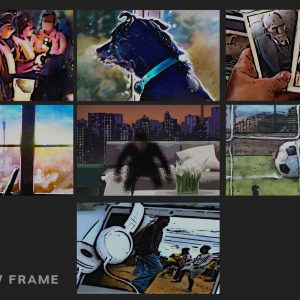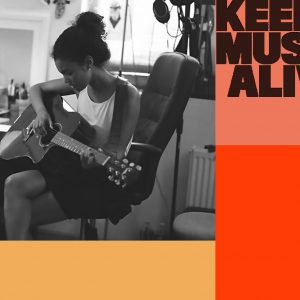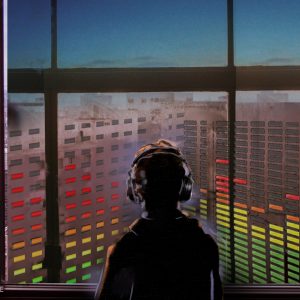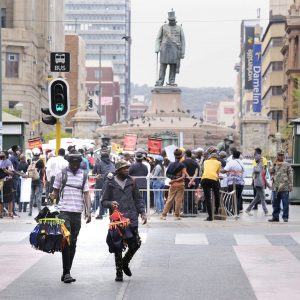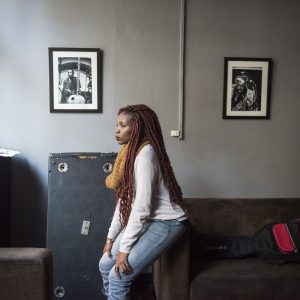Artists cannot live on streaming revenue
With no live gigs, musicians in South Africa and abroad have struggled financially. The UK is looking at new legislation to ensure creators are fairly compensated when their songs are streamed.
Author:
12 November 2021

The impact of the Covid-19 pandemic and lockdown restrictions on live music has shone a harsh spotlight on the unequal nature of streaming revenue distribution.
“Overnight on 26 March 2020 [when lockdown was imposed] South African musicians lost any prospect of any revenue in an already unprotected working environment,” said Gabi le Roux, the general secretary of the Trade Union for Musicians of South Africa (Tumsa). “The only thing they could rely on was relief from government, which was a mess.”
Le Roux described the past 20 months as “terrible”. Union members who couldn’t pay their rent were evicted and lost furniture and music equipment in the revenue crunch that followed.
Related article:
“It’s been immediate and drastic for the vast majority of our members,” he said. “We are shattered and have been reduced to spending most of our time fighting for relief.”
Le Roux said politicians don’t understand the economic impact that the pandemic has had on musicians. And the situation is not unique to South Africa. Two reports released recently in the United Kingdom show why revenue from playing live is crucial to musicians faced with meagre streaming royalties.
Elite musicians only
Musicians in Britain were struggling financially before the pandemic. The UK Intellectual Property Office (IPO) released a report in September, titled Music Creators’ Earnings in the Digital Era, highlighting that more than a third of musicians in the country reported 2019 earnings of £5 000 (about R92 500 at the time) or less from music and nearly half earned less than £10 000.
The lack of live music revenue during the pandemic created a greater reliance on income from streaming. But a 2019 member survey by the Ivors Academy and Musicians’ Union found that 82% of professional musicians made less than £200 that year from streaming, while only 7% made more than £1 000.
Related article:
One of the IPO report’s shocking findings was that only 1 723 musicians in the UK get more than a million streams a month, which is the minimum required to earn a sustainable living.
Another statistic from the report shows how this happens. The top 0.1% of artists get 39% to 43% of the overall streams in a year. If you broaden that to the top 1% of artists, you’re looking at 78% to 80%. And the top 10% get up to 98% of streams. So, the remaining 90% of artists share 2% of total streams.
The IPO report also says the revenue that featured artists and studio producers receive has declined by 41% in real terms over the past two decades. The revenue that composers and lyricists receive has decreased by 20%.
In favour of labels
Even if a musician is involved in writing or recording a song that gets millions of streams, it’s not a guaranteed payday.
According to evidence submitted to the UK House of Commons’ digital, culture, media and sport committee during its economics of music streaming inquiry this year, one song that was streamed 137 million times on Spotify earned a royalty of just over £3 000. Another that was streamed 14 million times earned one of its songwriters just €352 (about R6 300 at current exchange rates).
Will Page, the streaming service’s former chief economist, gave written evidence saying that the streaming economy works in favour of the recorded music business, but artists’ income has not grown proportionally.
Related article:
“Everyone benefits from the streaming-led recovery, but some more than others, with artists and songwriters feeling short-changed,” said Page. “For labels, the music industry is thriving. Between 2015 and 2019, the streaming-led recovery boosted UK major label turnover by 21% and operating profit margin increased from 8.7% to 11.8%.
“The recorded music business not only got bigger, but also much more profitable for record labels. Artists, however, have not received proportional benefit,” he said.
Le Roux called the disparity in streaming revenue distribution “ridiculous”.
Second jobs for songwriters
Considering these meagre incomes, it’s easy to see why several witnesses before the UK House of Commons committee testified that many hit songwriters and composers were also doing gig economy jobs for Uber or food delivery service Deliveroo.
Songwriter Fiona Bevan has written songs for popular acts One Direction and Kylie Minogue. She testified at the inquiry that one of her co-written songs had recently featured on a No. 1 album, the fastest-selling solo artist album of the year, yet it earned her just £100.
“It comes from an archaic split where the labels had huge physical overheads to produce vinyl and CDs, to store them and to ship them,” testified Bevan. “Streaming has taken over utterly … There is not really an excuse for these huge behemoth companies to have 55% when they do not have these physical overheads any more. It is very cheap for them to distribute the music,” said Bevan.
Related article:
“If that was a bit more even, the songwriters would be able to survive. Right now, hit songwriters are driving [for] Uber.”
Songwriter Nadine Shah rammed the point home. “As an artist with a substantial profile, a substantial fan base, critically acclaimed … I don’t make enough money from streaming,” she told the committee. “I am in a position now where I am struggling to pay my rent and I am embarrassed to talk about these issues publicly … for many reasons, because money to an extent is an indication of success. Here that is not really the case, because I am a successful musician. But I am not being paid fairly for the work that I make.”
Another musician who testified was Grammy Award-winning producer and songwriter Nile Rodgers. After decades of success, his view of the music recording industry is dim. “The music business is the only business where after you pay off the mortgage on the house, they still own the house … There is no other business on Earth that does that. We pay back all the royalties, and they still own our property. It is ridiculous.”
A right to remuneration
The digital, culture, media and sport committee released its second report in July, after considering days of oral testimony and more than 300 written submissions.
It contains findings and recommendations aimed at the fairer distribution of revenue from music streaming to which South African politicians, legislators and competition authorities should pay attention. It says “successful, critically acclaimed professional performers” are seeing “meagre returns” from streaming and that “non-featured performers” are “frozen out altogether”.
The inquiry found that record companies defining a stream as a sale ignores the fact that a stream is also a rental and a broadcast. This exploits copyright controls that grant performers the right to equitable remuneration. The report recommends that the British government explore new legislation to ensure artists can exercise this right.
A letter to Prime Minister Boris Johnson in April – signed by more than 230 artists, including Lily Allen, Mike Skinner, Massive Attack, Kate Bush, Kano, Paul McCartney, Stevie Nicks, Jimmy Page and Sting – called for these rights to be afforded to artists when it comes to streaming their music.
Related article:
The report also recommends that two other rights be incorporated into UK copyright law: the right to recapture work and the right to adjust contracts when artist royalties are disproportionately low compared with the success of the music.
As Horace Trubridge, general secretary of the Musicians’ Union, told the committee, “when equitable remuneration came in for radio play, it was a lifeline” as “it meant that you had a source of income that the record companies could not get their hands on”.
Trubridge said equitable remuneration could also help legacy performers, who are paid according to pre-digital contracts at much lower royalty rates despite generating significant revenue for the industry. Radiohead guitarist Ed O’Brien testified that the band’s biggest-selling single, Creep, was covered by a recording contract in the early 1990s that paid them a 12% royalty, compared with royalty rates of between 20% and 30% today, depending on the profile of the artist.
Le Roux supports all three of the new rights that the committee suggested. South African musicians need to be afforded these rights too, he said, and these issues need to be addressed in the Copyright Amendment Bill, which President Cyril Ramaphosa sent back to Parliament. The bill is vague about creative rights and Le Roux said sections of it are flawed, leaving it open to abuse.
The ‘big guys’
The committee’s report calls on the UK’s competition authorities to look into the dominance of global record labels. “There is little incentive for their music publishing interests to redress the devaluation of the song relative to the recording,” it says.
Le Roux suggested that South Africa should be pursuing similar lines. “The competition authorities need to be braver in how they take on the big guys,” he said, stressing that the “big guys” are internet companies as well as record labels. “We can’t argue they can’t exist – you can’t shut down YouTube – but you can persuade them to change course by appealing to a sense of justice.”
The report flags cross-ownership in the music industry. In 2008, Spotify offered 18% of its shares to Merlin, the collective digital rights and licensing agency for independent record labels, and the four major music groups: Sony, Universal, Warner and EMI. In exchange for investing €8 804.40, Sony got 6% of Spotify’s shares, Universal 5%, Warner 4%, EMI 2% and Merlin 1%.
Related article:
A decade later, when Spotify was floated on the New York Stock Exchange in April, Sony sold 50% of its shares for $750 million, $250 million of which was shared with artists, and Warner sold 75% of its shares for about $400 million, a quarter of which was shared with artists. Merlin and Warner have since divested from Spotify. Universal is yet to sell any of its equity, which is estimated to be worth $1.6 billion.
The report says that because record labels were invited to invest and song publishers were not, performers received at least some benefit from Warner and Sony’s sales of shares while songwriters and composers did not.
Erosion of trust
Artists and their representatives face a “systemic lack of transparency” from music companies and the streaming services that license their work, the report says. “Creators and their representatives have a right to know about the terms on which their works are exploited and verify the outcome of these agreements.”
Le Roux said South African musicians are generally at even more of a disadvantage, as they don’t know their rights. “Musicians don’t realise that they have to hold the labels and royalty collection societies accountable.” He added that much of Tumsa’s work involves running workshops to educate musicians.
Related article:
Rodgers stressed before the UK committee the need for transparency from record companies and the importance of artists being able to audit the revenue their music earns. “The only time that we really get to check to see if things are the way they should be is when we go in and audit,” he testified. “Every single time – and I am not making this up for dramatic or comedic purposes – I have audited a label, I have found money.
“Sometimes it is staggering, the amount of money. That is because of the way the system was designed right from the beginning.”
O’Brien told the committee that this lack of transparency, combined with unequal remuneration, had eroded trust between creators and their labels. “I think it is even more murky now with the lack of transparency, the opaqueness in the system, the fact that some partners are making huge amounts of money. It has always been tough [for artists], but it feels like it is tougher now.”

